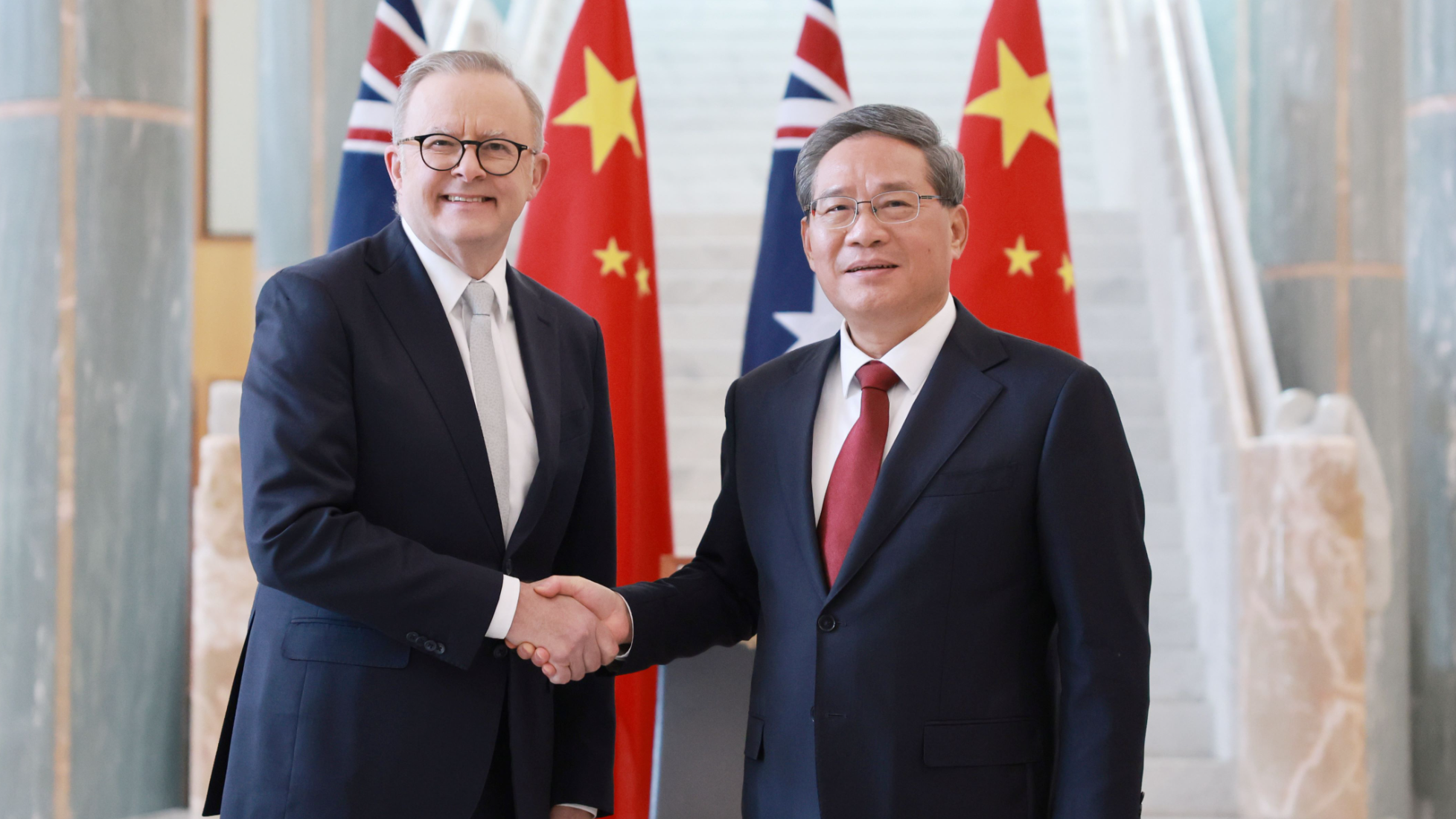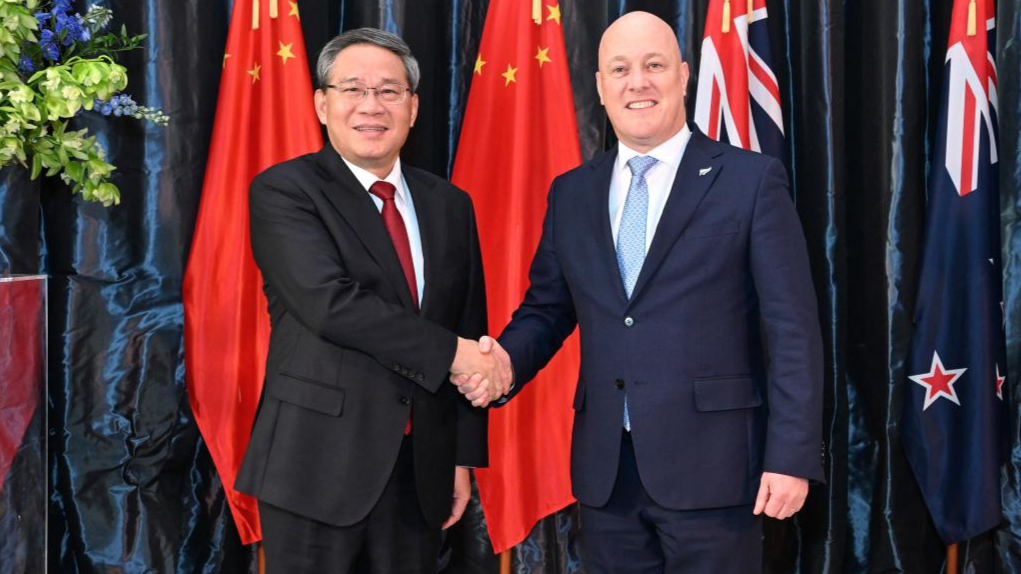
From making visa-free travel arrangements to getting pro-panda pledge from Australian authorities, Premier Li Qiang’s productive visits to New Zealand and Australia are hailed as a huge success in getting the relationships with both countries back on track.
Analysts said whatever differences that may have existed between Wellington and Canberra with Beijing have been washed away by Li’s visit — the first time a Chinese premier visited either country in seven years.
Professor James Laurenceson, who heads up the Australia-China Relations Institute at the University of Technology Sydney said in Australia’s case the visit marked a “return to dialogue” with China.
READ MORE: Visit's reaffirmation of friendly ties is positive marker for regional stability
He pointed to several agreements signed between Li and Australia’s Prime Minister Anthony Albanese in Canberra.
It was an opportunity to reflect on the achievements in the economic relationship and to share views more broadly on a range of challenging international issues.
Jason Young, Director, New Zealand Contemporary China Research Centre, Victoria University
“Don’t forget a few years ago there was a breakdown in dialogue between Canberra and Beijing,” Laurenceson said. “That dialogue is now back on track, and that is a good thing.”
While the usual right-wing commentators went out of their way to find fault with Li’s visit, this was largely overshadowed by the warm welcome he received in both New Zealand and Australia.
Nowhere more so than when Li announced in Adelaide, South Australia, that two new giant pandas would replace Wang Wang and Fu Ni after 15 years at Adelaide Zoo.
Speaking at a banquet in Perth on June 18, the last day of Li’s visit, Albanese reiterated his gratitude to the Chinese delegation for promising two new pandas to the zoo.
“My government is pro-panda,” he said. “We very much welcome these beautiful ambassadors who will bring joy, particularly to Australian children, for many years to come.”
During Li’s visit to their countries, Albanese and his New Zealand counterpart Christopher Luxon emphasized their close relationship with China and its importance in maintaining regional stability. It was a sentiment shared by Li.
ALSO READ: Beijing, Canberra to expand cooperation
Alistair Crozier, the executive director of the New Zealand China Council (NZCC) called Li’s visit “a timely chance for our two governments to have a frank and open exchange of views at the most senior level, which is always valuable”.
“Despite differences in scale, New Zealand remains an active country in our region, with particular links and expertise in the South Pacific — so both countries benefit from hearing each other’s perspectives on regional issues,” he told China Daily.
Crozier said that New Zealand and China confirmed publicly they had discussed a range of regional security issues.
“While none of these can be solved overnight, it’s critical that both sides hear about each other’s interests, so that points of convergence can be found and points of difference handled respectfully,” he said. “Management of issues is the key thing.”
Jason Young, director of the New Zealand Contemporary China Research Centre at Victoria University in Wellington, said Li’s visit was “productive” and demonstrated that both sides seek to maintain a stable cooperative relationship.
“It was an opportunity to reflect on the achievements in the economic relationship and to share views more broadly on a range of challenging international issues,” he told China Daily.
Young said one of the highlights of the visit was the announcement of visa-free travel to China for New Zealanders.
READ MORE: Li calls for upgrading ties with New Zealand
“This is welcomed by those with personal or business connections to China as it will make travel to China easier in the coming years,” he said.
Young said China and New Zealand “gain from having a stable and productive relationship. They both benefit from economic and people-to-people exchanges”.

A similar agreement was announced with Australia during Li’s visit.
According to Crozier from the NZCC, one of the more significant agreements from Li’s visit to New Zealand was confirmation that both countries would work to liberalize trade in services, under the 2008 Free Trade Agreement.
“Other highlights included the selection of scientific research projects for joint support and agreements on market access for more NZ fruit (kiwi berries), infant formula cooperation, and migratory bird conservation,” he said.
“The visit also enabled Premier Li to experience the unique welcome of New Zealand’s Maori people, and the enthusiasm of people-to-people links at large welcome events.”
While in Canberra, Li met with Albanese for the annual leaders' meeting on June 17. This saw five memorandums of understanding signed between the two nations covering trade, education, the economy, climate change, and cultural exchanges.
Speaking after the meeting, Albanese said dialogue was crucial for Australia's relationship with China.
“It is always most effective when we deal directly with each other,” Albanese said.
“That's how we make progress on our shared interests and protect regional stability.
“Without dialogue, we can't address any of the differences that arise between us.”
Contact the writer at karlwilson@chinadailyapac.com


